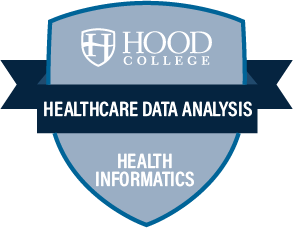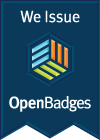Badge Overview
 Health Information Systems & Data Standards: Healthcare Data Analysis
Health Information Systems & Data Standards: Healthcare Data Analysis
Published Public {} Badge Class Data
Health Information Systems & Data Standards: Healthcare Data Analysis

Issued by Hood College
Badge Description
Offered through The Ruth Whitaker Holmes School of Behavioral and Health Sciences at Hood College, the Healthcare Data Analysis badge explores the challenges and possible solutions to ensure the interoperability between health information systems, representation of health data using standardized vocabulary and standards of communication. Topics include data standards and semantics, ontologies such as FHIR, UMLS, SEMNET, ICD-9/10, RXNorn, SNOMED, policy and theory and practice of standardization. Additionally, this course analyzes the challenges confronting healthcare leaders in a new era characterized by economic incentives and changing relationships between providers, payers and purchasers, new delivery models and payment mechanisms, and advances in clinical integration, information technology and quality improvement. Learners will explore leadership strategies required for achieving financial stability while delivering greater value.
health information systems
Health Data
Data Standards
Data Semantics
Ontologies
information technology
Badge Criteria
This INTERMEDIATE level badge is equivalent to a 3-credit, master's-level course. Earning a grade of B or better is required for this badge.
Aligned Outcomes
-
Internal
Core Competencies
https://www.hood.edu/offices-services/institutional-assessment/institutional-learning-outcomesGSO_CommCommunication
The badge earner will communicate clearly and effectively in oral, written and/or visual formats, consistent with the standards of their discipline.
-
Internal
Core Competencies
https://www.hood.edu/offices-services/institutional-assessment/institutional-learning-outcomesGSO_CriReasCritical Reasoning
The badge earner will approach content and tasks with a critical awareness, framed by knowledge and skills appropriate to their discipline.
-
Internal
Core Competencies
https://www.hood.edu/offices-services/institutional-assessment/institutional-learning-outcomesGSO_ProbSolvProblem Solving
The badge earner will apply advanced disciplinary content knowledge and strategies to understand and address problems and questions relevant to their discipline and to which they have not previously been introduced.
-
Internal
Core Competencies
https://www.hood.edu/offices-services/institutional-assessment/institutional-learning-outcomesGSO_DivDiversity
The badge earner will recognize and engage diverse ideas, perspectives and/or traditions that inform their discipline, profession and graduate experience.
-
Internal
Core Competencies
https://www.hood.edu/offices-services/institutional-assessment/institutional-learning-outcomesGSO_ProfProfessionalism
The badge earner will engage in legal, ethical and professional behaviors consistent with their discipline, including leadership, teamwork and/or other responsibilities to key stakeholders.
